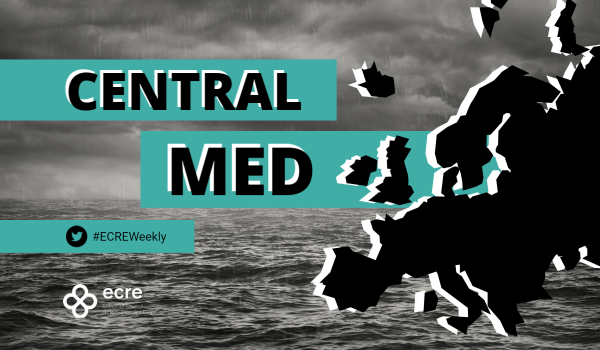Between August 2021 and January 2022, more than 41,000 people arrived via the Central Mediterranean making it the busiest maritime route to Europe. Already by 28 February, close to 200 people had lost their lives attempting to cross and the death toll continues to rise.
41,512 people arrived via the Central Mediterranean route between August 2021 and January 2022 compared to 17,944 through the Atlantic route and 10,871 through the Western Mediterranean route respectively. According to the International Organization for Migration (IOM) 193 people had died or gone missing as of 28 February and the death toll continues to rise. A total of nine bodies, believed to be victims of a shipwreck on 27 February when 50 lives were lost, were recovered when they washed up in western Libya in the beginning of March. At least 19 people lost their lives over the weekend of 12 – 13 March when a boat carrying 23 people of Egyptian and Syrian descent got into distress off Libya. Six people were rescued.
On 5 March the NGO hotline Alarm Phone was informed of 26 people in distress on a rubber boat after departing Libya. While Maltese and Italian authorities remained unresponsive the group was rescued by a container vessel on 6 March. According to Alarm Phone, Italy and Malta denied disembarkation. The hotline further reported 24 people missing after leaving Tunisia with authorities unresponsive to requests for information. The Geo Barents vessel operated by Médecins Sans Frontières (MSF) rescued 111 people including 52 children, some under dramatic circumstances over the weekend of 5-6 March. Despite the medical needs of survivors, the vessel was initially denied permission to drop anchor by Malta and Italy. Permission was finally granted on 14 March when survivors could disembark in Augusta, Sicily. The Open Arms vessel disembarked 28 survivors on board in the same port on 11 March after a week at sea.
According to IOM more than 3,000 people have been intercepted and returned to Libya in 2022 as of 12 March. Reportedly, the number of irregular migrants in the country, notorious for widespread human rights abuses, reached 700,000 in 2021. At the opening of a centre for migrants on the airport road in Tripoli, prime minister Abdul Hamid al-Dbeibeh underlined the need to take care of immigrants and provide them with appropriate conditions. The centre is according to the minister equipped with medical clinic, gyms, and access to means of communication. However, the situation in the country remains unstable and dire with a recent wave of arrests by Libya’s Internal Security agency seeking to silence “critical voices by “threats and with torture-tainted evidences used to extract ‘confessions’ “.
For further information:
- ECRE, Central Med: Hundreds Rescued Yet Death Toll Continues to Rise, Frontex Covers Up Cooperation with Rogue Libyan Authorities, Protests in Tunisia, February 2022
- ECRE, Central Med: Rescues Continue as Malta is Called Out for Preventing Disembarkation and Conducting Pushbacks to Libya Whose ‘Coast Guard’ Again Faces Scrutiny, February 2022
This article appeared in the ECRE Weekly Bulletin. You can subscribe to the Weekly Bulletin here.

